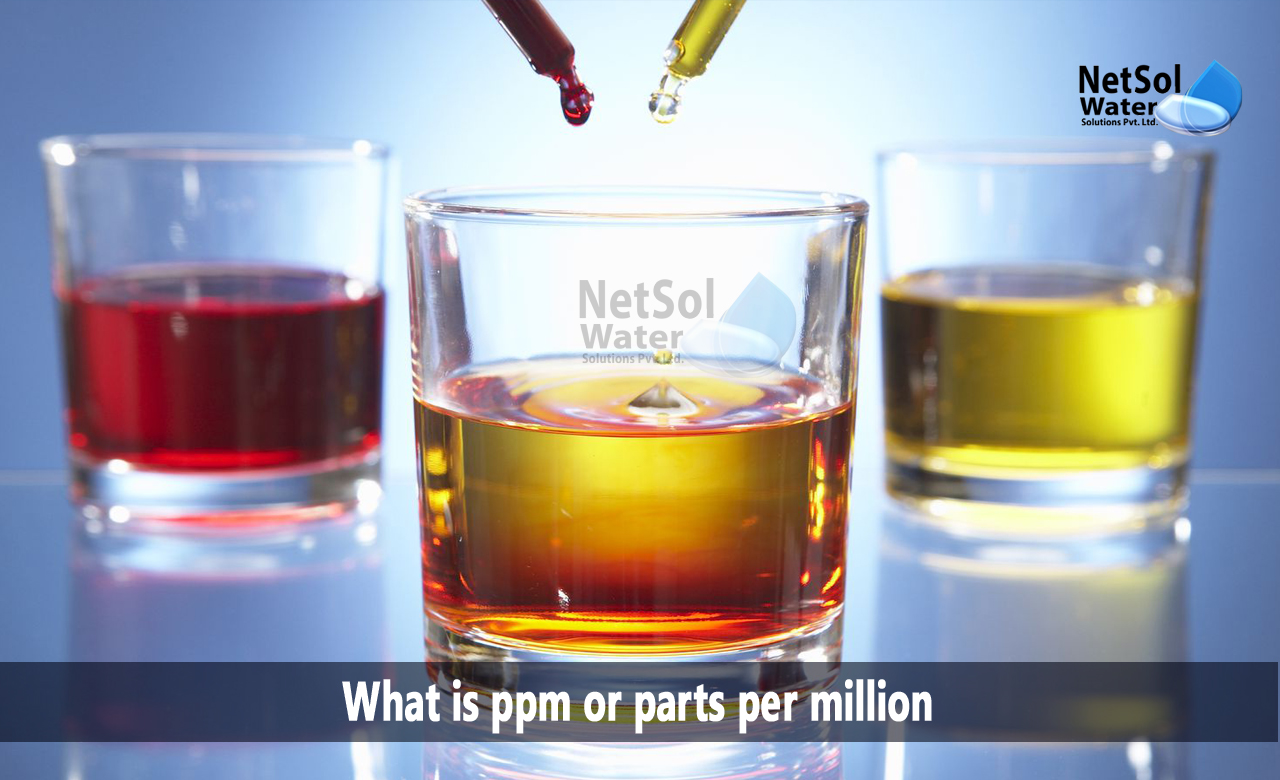We use the term "Parts per million" to refer to extremely minute quantities of one thing, contained within a considerably larger quantity of another. Here are some instances of anything having one part out of a million parts.
What is ppm or parts per million and How calculate PPM?
A part per million (ppm) is, in essence, a very little amount of something present in a very big amount of something else. Instead of needing to represent concentrations as very small fractions or enormous amounts, using the term "ppm" is simpler (e.g., 0.000016 or 1 car in 13,009,920 feet).
Milligrams/Liter (mg/L) is frequently used interchangeably with ppm.
1 mg/L = 1 ppm because one litre of water weighs one million milligrams
1 ppm = 1 mg/L
Parts per million, or ppm, is a standard unit of measurement for trace amounts of contaminants in the air, water, human fluids, etc.
ppm derivations
We have,
The molar mass, volume, or mass ratio between the pollutant component and the solution, is expressed in parts per million. As defined,
ppm = 1,000,000 c / s
= 106 c / s
Where,
c = the solute component's molar mass, volume, or mass (mole, m3, ft3, kg, lbm)
s = the solution's molar mass, volume, or mass (mole, m3, ft3, kg, lbm)
The metric system allows for the expression of ppm for mass in terms of milligrams against kilogrammes, where
1 mg/kg is equal to 1 ppm
Ppm. can be also be expressed as
1 ppm = 10-6 = 0.0001 % = 0.001 %
1000 ppm = 0.1 %
10,000 ppm = 1%
Alternatively:
- ppb is parts per billion (1 / 1,000,000,000)
- ppt is parts per trillion (1 / 1,000,000,000,000)
- ppq is parts per quadrillion (1 / 1,000,000,000,000,000)
Other mass related unit to measure larger concentration levels is the “weight percent “, which is expressed as
Weight percent = 100 mc / ms
Why is ppm measurement important?
We measure the concentrations of minerals and gases dissolved in water using ppm in the water treatment process. Heat is transferred through water. These dissolved contaminants might result in issues with the equipment, such as corrosion and mineral scale, when the water conducts heat.
There is a limit to how much of a mineral may be dissolved by water, depending on its properties. The minerals may then seek to leave solution if we alter the water's temperature and concentration. To aid in the prevention of these issues, we use treatment chemicals that are measured and added in ppm.
How is PPM calculated?
PPM is either calculated or determined through chemical testing by using titration, colorimetric, or ion-selective-electrode (ISE) procedures.
Conclusion
In the field of water treatment, there are numerous abbreviations and measurement units. A successful water treatment programme may depend on knowing and comprehending what they are, why they are significant, and what they represent.
The professionals at Netsol Water can assist you in identifying possibilities to increase the lifespan, effectiveness, and dependability of your water treatment systems.
Netsol Water is Greater Noida-based leading water & wastewater treatment plant manufacturer. We are industry's most demanding company based on client review and work quality. We are known as best commercial RO plant manufacturers, industrial RO plant manufacturer, sewage treatment plant manufacturer, Water Softener Plant Manufacturers and effluent treatment plant manufacturers. Apart from this 24x7 customer support is our USP. Call on +91-9650608473, or write us at enquiry@netsolwater.com for any support, inquiry or product-purchase related query.



